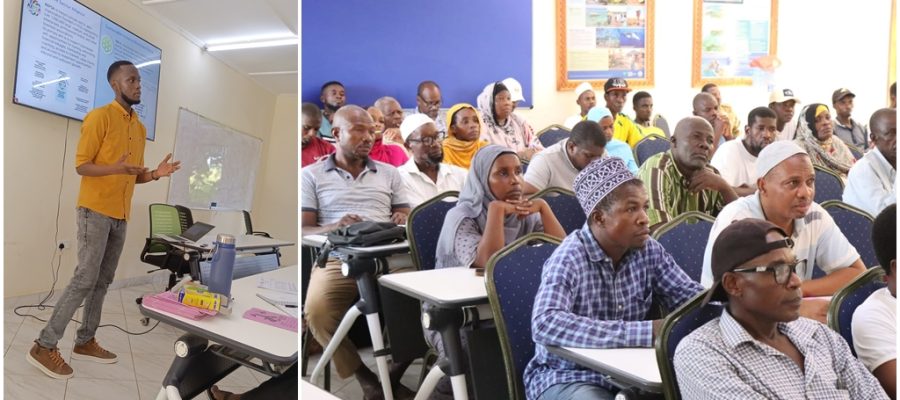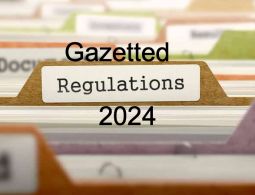21st August 2023, Nairobi: The Kenya Plastics Pact, a collaborative platform comprising critical stakeholders from the government, the private sector including manufacturers and retailers, Extended Producer Responsibility Organizations (PROs), civil society, and the informal waste sector, has announced its commitment to combat plastic pollution through innovative solutions.
The Pact will also support its Members to comply with the Extended Producer Responsibility (EPR) provisions under the Sustainable Waste Management Act (2022), where one of the key objectives is alignment with the circular economy’s goals, including providing a framework for the responsible management of plastic waste.
Plastic pollution has emerged as a global environmental crisis, with Kenya being no exception. The Kenya Plastics Pact recognizes the urgency of addressing this challenge and is dedicated to driving systemic change across the plastics value chain.
With result-oriented activities led by members and supporters, the Pact is focused on accelerating progress toward a sustainable future by establishing a shared vision, a collaborative action plan, and ambitious targets towards creating a circular economy for plastics in Kenya. The Kenya Plastics Pact aims to achieve the following targets by 2030:
1. Eliminate unnecessary or problematic single-use plastic packaging items through redesign, innovation, and reuse models.
2. Ensure 100% of plastic packaging is reusable or recyclable.
3. Ensure 40% of plastic packaging is effectively recycled.
4. Increase the average recycled content to 15% across all plastic packaging.
For this reason, the Pact is increasingly engaging its Members in consultative workshops to forge a consensus on the best strategy for implementing the activities outlined in the Pact’s Roadmap to 2030. One of the approaches being discussed is the EPR- a critical framework developed by the government, that the Kenya Plastics Pact supports.
“We’re helping stakeholders in the plastics value chain to work together to redesign the plastics system, eliminate unnecessary and problematic plastic items, increase the recycling rate and reuse of plastics, and support a circular economy. We seek to inspire change in how plastic is produced, used, and disposed of in Kenya and to serve as a model for other countries in the region and beyond,” said Ebenezer Amadi, the Program Manager at Sustainable Inclusive Business, the KPP Secretariat.
EPR shifts the government’s responsibility for plastic waste management to the producers using a product lifecycle approach. Section 13 of the Act requires that all producers that introduce products to the Kenyan market bear mandatory responsibility for the post-consumer stage in their products’ lifecycle, from design and cleaner production to prioritizing re-use, increasing recycling rates for technical material, and safe disposal in a temporary, controlled landfill. By holding producers accountable for the entire product lifecycle, EPR promotes circularity and reduces the negative environmental impact of plastic waste.
“As the private sector, the time to act is now, as we build momentum towards an implementation mechanism for EPR in the global south. The Pact plays a critical role by mobilizing private sector members and supporting the government and the PROs in education and awareness campaigns, especially regarding the producers’ obligations under the Act. This is key in kicking off the road map to compliance,” noted Faith Ngige – Coordinator, Climate Business Information Network – Kenya (CBIN-K) under the Kenya Private Sector Alliance.
The commencement date for the Sustainable Waste Management Act was 26th July 2022; hence, the law is fully operational. Producers should therefore undertake their EPR responsibility immediately without further delay. In this regard, NEMA has organized an information session for all producers in Kenya to elaborate on what is expected of them in demonstrating compliance with section 13 of the Sustainable Waste Management Act (2022). The session will be held virtually on Wednesday, 23rd August 2023, from 8:30 am, via this link: bit.ly/45vWBhG
With a growing membership base across the plastics value chain, the Kenya Plastics Pact is committed to working with like-minded partners to continually adopt strategies that will contribute to a thriving Kenyan economy while reducing the negative impact of plastics on the environment and human health, guided by its roadmap.
For media inquiries, please get in touch with josephine@sustainableinclusivebusiness.org
About the Kenya Plastics Pact
The Kenya Plastics Pact is an ambitious, collaborative initiative that brings together businesses, governments, researchers, NGOs, and other stakeholders across the whole value chain to set time-bound commitments to transform the current linear plastics system into a circular plastics economy. As the second in Africa, the Pact aims to ensure that plastics never become waste by eliminating plastics we don’t need, innovating to ensure that the plastics we do need are reusable or recyclable, and circulating all the plastic packaging items we use to keep them in the economy and out of the environment. The development and implementation of the Kenya Plastics Pact are led by Sustainable Inclusive Business, the knowledge centre under the Kenya Private Sector Alliance (KEPSA).



